Posts Tagged ‘“Product Recall”’
Smoke Alarm Recall Affects More Than One Million
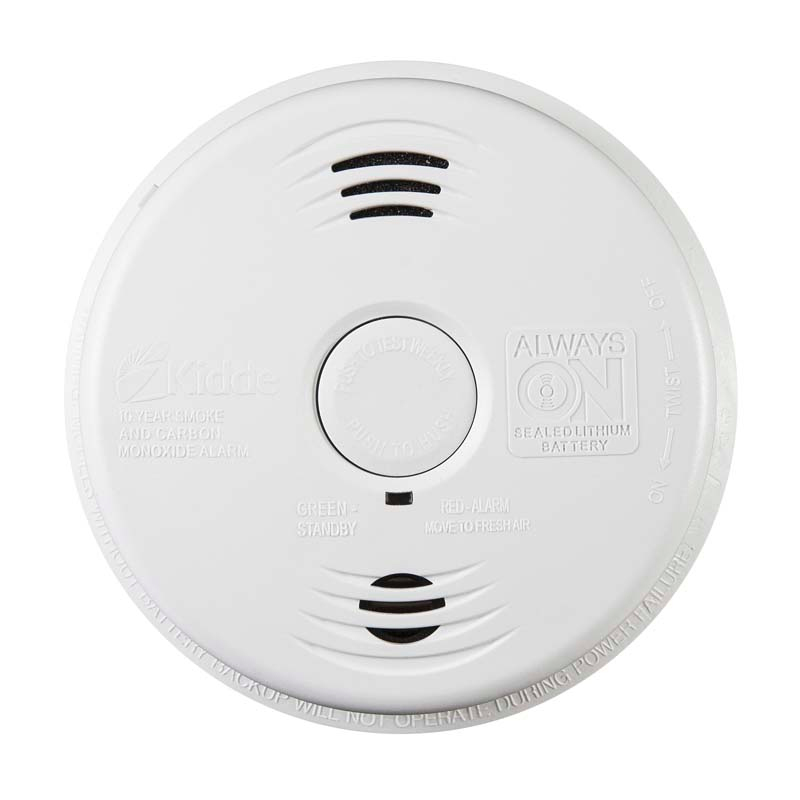 The Consumer Product Safety Commission is calling on the public to check their home smoke alarms, after more than a million units were recalled yesterday.
The Consumer Product Safety Commission is calling on the public to check their home smoke alarms, after more than a million units were recalled yesterday.
Kidde recalled 1.2 million smoke alarms in the United States and 112,000 in Canada. No injuries have been reported, but the models have a defect which may prevent them from working after a power outage. This is an important recall because each year, three to five deaths in property fires come in buildings without working smoke alarms, according to the U.S. Fire Administration.
The smoke alarms are all residential models:
- Kidde residential smoke alarm model i12010S with manufacture dates between December 18, 2013 and May 13, 2014
- Kidde Combination smoke/CO alarm il2010SCO with manufacture dates between December 30, 2013 and May 13, 2014
- Kidde Combination smoke/CO alarm model KN-COSM-IBA with manufacture date between October 22, 2013 and May 13, 2014
These smoke alarms are all hard-wired into a home’s electric system. The i12010S and il2010SCO models come with 10-year batteries inside while the KN-COSM-IBA uses replaceable AA backup batteries.
These smoke alarms look like most: white, round and are about 5 to 6 inches in diameter. Closely inspect the fine print on the front of yours for the word “Kidde.” On the backside, there is a label with the model number and manufacturing dates. “Always on” is also engraved on the front of alarms with sealed 10-year batteries.
These smoke alarms were sold at CED, City Electric Supply, HD Supply, Home Depot, Menards Inc. and other retailers. They were sold online at Amazon.com, HomeDepot.com and shopkidde.com from January 2014 through July 2014 for between $30 and $50.
Smoke Alarm Safety Tips
Daylight Saving Time. We will set our clocks back an hour for Daylight Saving Time on Sunday, November 2. The National Fire Protection Association and other safety officials recommend we also replace the batteries in our smoke alarms, test them to make sure they work and replace any models which are 10 years old.
Monthly Testing. Safety organizations also recommend we test smoke alarm batteries once a month.
Inform Others. Make sure everyone in your home knows what the smoke alarm sounds like and knows where they are located. Here is a resource for more safety and planning information.
Apartment Residents. If you rent an apartment, ask your building management company or property owner to show you the smoke alarms when you sign the lease. Contact them whenever you suspect a problem or have a question.
Read More
February Product Recalls: CPSC Urges Consumers to Look for Cedar Chests after Children’s Deaths
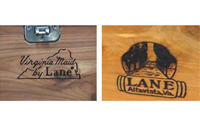 We share some of the February product recalls and notices issued by the Consumer Product Safety Commission (CPSC). Each year, thousands of unsafe products are recalled by the CPSC and other government agencies. The CPSC is now focused on the dangers of wooden chests, issuing a renewed call for the cedar chests which recently trapped two young children in Franklin and warning about other chests which have unsafe latches. Since 1996, the agency is aware of 34 reports of deaths involving wooden storage and toy chests.
We share some of the February product recalls and notices issued by the Consumer Product Safety Commission (CPSC). Each year, thousands of unsafe products are recalled by the CPSC and other government agencies. The CPSC is now focused on the dangers of wooden chests, issuing a renewed call for the cedar chests which recently trapped two young children in Franklin and warning about other chests which have unsafe latches. Since 1996, the agency is aware of 34 reports of deaths involving wooden storage and toy chests.
Protect your family and home by taking a quick glimpse at this month’s list:
Renewed Search for Cedar Chests. On Feb. 27, the CPSC and Lane Home Furniture issued a call for the public to make a renewed search for the company’s cedar chests. On Jan. 12, a young brother and sister from Franklin suffocated to death in one of the chests while playing hide-and-seek. The CPSC investigation determined that the 75-year-old Lane cedar chest closed and automatically latched shut, locking the children inside.
The chest should not have been in use with the defective locks. In 1996, the Lane Company recalled 12 million similar chests which were made between 1912 and 1987. By 1996, six children had suffocated inside the cedar chests. By 2000, a seventh child had suffocated and two others had nearly died. The company has offered new hardware so the chests will no longer automatically latch shut, but reports estimate there are still 6 million chests which need the repair.
Consumers may have one of these chests in their homes even if they do not realize it. Some may have been purchased at second-hand stores or passed down through families. In the Franklin case, the CPSC said the chest was purchased at a local resale store about 13 years ago. Consumers can look for these names inside the cedar chests: “Lane” and “Virginia Maid.”
If you have a chest, you should immediately remove the latch and contact Lane for the replacement hardware. Read the recall notice.
Infantino Recalls Teething Toys Due to Choking Hazard; Sold Exclusively at Target
Infantino has recalled about 191,000 teething toys sold at Target. The toy was the “Go Gaga Squeeze & Teethe Coco the Monkey.” The company received seven reports of infants choking or gagging on the monkey’s tail. No injuries have been reported. The toys were sold at Target stores nationwide and online from December 2012 through January 2014 for $13. Consumers should take these toys away from young children and contact Infantino for a free replacement.
BebeLove Recalls Baby Walkers Due to Fall and Entrapment Hazards
BebeLove Baby Walkers were recalled for not meeting federal safety standards. BebeLove USA recalled about 3,600 models sold on Amazon.com, Overstock.com and small retailers in California, Arizona and Utah from November 2011 through July 2013.
Consumers can are advised to stop using the product and contact BebeLove for a free repair kit.
No injuries have been reported, but the CPSC reports that style number 358 can fit through a standard doorway and is not designed to stop at the edge of a step as required by the federal safety standards. In addition, style number 368 has leg openings which allow a child to slip down to the point their head can become entrapped at the neck. The CPSC said children using these walkers can be seriously injured or killed.
Rowe Fine Furniture
Rowe Fine Furniture recalled about 220 Ottomans due to a risk of suffocation. No injuries were reported, but the company learned a child became trapped in an Ottoman after a sibling closed the lid on the storage compartment. Consumers can contact Rowe for a free replacement lid and a warning label.
More than 33,000 Child Car Seats Recalled
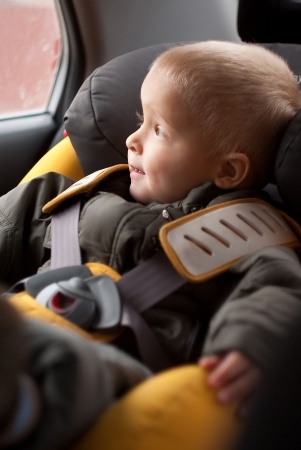 Combi USA announced a recall of over 33,000 car seats last week and said parents should expect repair kits starting in February.
Combi USA announced a recall of over 33,000 car seats last week and said parents should expect repair kits starting in February.
Combi USA recalled its Coccorro, Zeus, Turn and Zeus 360 models made through January 2013. The National Highway Traffic Safety Administration (NHTSA) reports the seat straps do not meet minimum requirements. Children may not be properly secured in case of a car accident.
The Charlotte, N.C. company said one part of the harness failed strength tests, but the harness as a whole meets safety standards. Seats made after January 2013 do not have this defect.
Combi USA will notify owners who have registered their products and mail out free harness replacement kits starting in February.
What to Know About Child Safety Seats
Choosing a safe car seat and learning how to properly install it is a struggle for many parents. There are a number of resources to help make the process easier.
Product Recalls.The Consumer Product Safety Commission (CPSC) website provides updates on product recalls. This recall was reported in the media and not listed on the website, but most recalls can be found there.
NHTSA. The National Highway Traffic Safety Administration provides online resources about child seat safety ratings.
State of Massachusetts. In Massachusetts, children must use some type of child passenger safety seat until they are 8 years old or weigh 57 pounds. All seats must meet federal standards. Read what types are appropriate for each age.
Local Police Departments and Organizations. Your local police may have an officer who has been specially trained to fit car seats. This is a free service.
Related:
Combi USA Recalls More than 33,000 Child Seats, ABC News.
Read More
Watch Out for This Recalled Children’s Toy
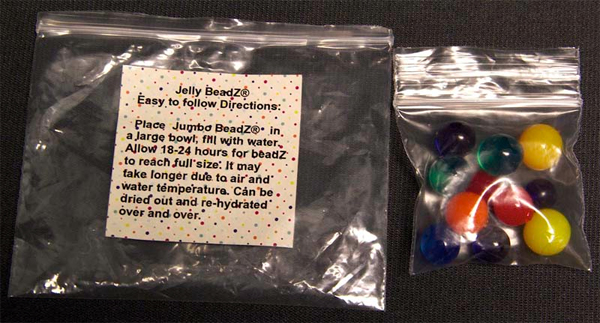
The Consumer Product Safety Commission (CPSC) announced several product recalls last week, including one for a dangerous child’s toy which can cause choking and which has been involved in a death. Also recalled were a high-end bicycle with defective brakes and a flat screen television which can overheat and catch on fire.
Doodlebutt Recalls Jelly BeadZ Jumbo BeadZ and Magic Growing Fruity Fun Toys Due to Serious Ingestion Hazard
About 1,500 of these small water-absorbing toys have been recalled by the importer, Doodlebutt of Lehigh Acres, Florida. The Jumbo BeadZ toys are marble-sized water absorbing balls and the Magic Growing Fruity Fun toys are water-absorbing polymer shapes, such as apples, bananas, butterflies and cherries.
The CPSC is aware of one incident in which an 8-month-old girl ingested the ball and it had to be surgically removed and two cases outside the United States, including one resulting in death.
The CPSC warns children can mistake the toys for candy and when swallowed, they can expand inside a child’s body. The toys can absorb 300 to 500 times their weight and grow up to eight times their original size. Children can suffer vomiting, dehydration and life-threatening injuries. Another problem is similar toys have not shown up on x-rays.
The toys were sold through Amazon.com from February 2012 to September 2013 for about $9. Consumers are advised to take the products away from children immediately and stop using the product. They can contact Doodblebutt for a full refund. Read the CPSC recall notice.
Eight Retailers Recall 32″ Coby Flat Screen Televisions Due to Fire and Burn Hazards
Eight retailers have recalled the 32″ Coby Flat Screen Television due to fire and burn hazards. These retailers have initiated the recall because Coby USA, the product importer and distributor, has gone out of business.
The CPSC has received reports of six incidents involving televisions overheating, smoking or catching on fire. No injuries were reported, but there was some property damage. In two cases, televisions caught on fire and one also scorched a wall.
Consumers are told to turn off and unplug the televisions and contact their retailer. Retailers may offer different remedies, which may include a refund, store credit, gift card or replacement TV. About 8,900 of the televisions were sold through:
Sears/Kmart
Toys R Us
ABC Warehouse
Fry’s Electronics
h.h. Gregg
Nebraska Furniture Mart
P.C. Richard & Son.
Online retailers
BestBuy.com dealtree.com
techliquidators.com
bestbuy.dtdeals.com
The televisions were sold nationwide from August 2011 through November 2013 for between $170 and $260.
Read the CPSC recall notice for the model numbers involved in this recall.
Trek Recalls Madone Bicycles Due to Crash Hazard; Front Brake Can Fail
Trek has recalled several models of its year 2013 Madone bicycles after five reports of loose front brake attachment bolts. No injuries have been reported, but consumers are advised to stop using the bicycle and take it to a Trek dealer for a free replacement front brake system. The bicycles were sold nationwide from July 2012 through this month for between $3,400 and $6,300 and for custom models, up to $15,000. About 6,300 bicycles are involved in this recall. Read the CPSC recall notice.
Other Recalls:
Shaws Industries Recalls Carpet Due to Fire Hazard; Sold Exclusively at Lowe’s Stores
Hobby Lobby Stores Recalls Accent Chairs Due to Risk Injury
Read More
Infant’s Death Prompts Walmart To Remove Baby Formula
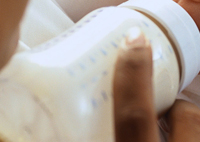 Walmart pulled Enfamil baby formula from more than 3,000 stores this week after a newborn’s death in Missouri.
Walmart pulled Enfamil baby formula from more than 3,000 stores this week after a newborn’s death in Missouri.
Walmart voluntarily removed the cans of Enfamil Newborn from its store shelves on Monday night. The baby formula is under investigation by health officials after the 10-day-old baby boy’s death Sunday from Cronobacter, a bacteria linked to newborn illness and milk-based powder baby formula. The formula had been used by the baby’s family. A second infant was infected by the bacteria, but recovered.
The 12.5-ounce cans of Enfamil Newborn are marked with the lot number ZPIK7G. This includes at the chain’s 35 stores, 12 super centers and 2 Sam’s Club locations in Massachusetts.
The formula has been sent for testing to the U.S. Centers for Disease Control and Prevention (CDC) and the Food and Drug Administration (FDA). In the meantime, the Missouri Department of Heath and Senior Services is urging consumers who purchased the formula to return it to the store or discard it.
The manufacturer Mead Johnson said that the batch of infant formula used by the child’s family tested negative for Cronobacter when it was produced and packaged.
Mead Johnson and Walmart representatives say the companies are working with authorities. Neither of the companies has implemented a formal product recall. The government has not requested one.
Click here to read a recent news article about this product liability case.
Read More
One Million Defective Baby Strollers Recalled
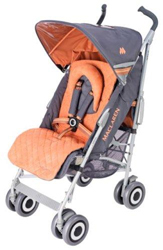 The Consumer Product Safety Commission (CPSC) has reannounced the recall of an unsafe baby stroller that is connected to 149 reported incidents, involving fingertip amputations, lacerations and other personal injuries.
The Consumer Product Safety Commission (CPSC) has reannounced the recall of an unsafe baby stroller that is connected to 149 reported incidents, involving fingertip amputations, lacerations and other personal injuries.
The CPSC reannounced the product recall of Maclaren strollers sold from 1999 to November 2009. The recall was reannounced in cooperation with the distributor, Maclaren USA, Inc., of South Norwalk, Conn.
Approximately one million defective baby strollers were sold nationwide through various retailers, including Babies R Us and Target. The strollers are defective because they have a hinge mechanism that can amputate a child’s fingers or cause a laceration when the consumer opens and unfolds the stroller.
The CPSC advises parents to stop using the defective baby stroller immediately and contact the company for a free repair kit, which includes a fabric cover for the hinge mechanism.
When the product was first recalled in 2009, the CPSC had received reports of 15 incidents, including 12 finger amputations. The CPSC made the reannouncement after the number climbed to 149, including 37 injuries that occurred after the 2009 recall. To date, the Maclaren stroller recall involves 17 overall reports of fingertip amputations as well as other serious personal injuries.
Parents can determine whether they have a defective children’s product by checking to see if the word “Maclaren” is printed on the stroller. If so, they should contact the company.
The affected models are Volo, Triump, Quest Sport, Quest Mod, Techno XT, Techno XLR, Twin Triumph, Twin Techno and Easy Traveler. The recalled strollers are single and double umbrella models.
Models sold after May 2010 have a different hinge design and are not included in the product recall.
Contact our dedicated Boston attorneys today
The Boston Massachusetts product liability lawyers at Breakstone, White & Gluck have over 80 years combined experience handling cases involving serious personal injury. We are experienced in handling injuries resulting from product recalls, defective motor vehicles and unsafe children’s toys and products.
If you have a case, contact us today at 617-723-7676 or use our contact form.
Parents Urged to Stop Using Infant Child Chairs
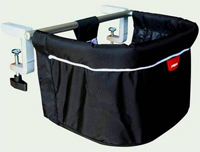 The U.S. Consumer Product Safety Commission (CPSC) is urging parents to stop using a clip-on table top chair for children that poses a threat of detaching and causing serious injuries.
The U.S. Consumer Product Safety Commission (CPSC) is urging parents to stop using a clip-on table top chair for children that poses a threat of detaching and causing serious injuries.
The CPSC reports it is aware of numerous incidents involving the “metoo” chairs imported by phil&teds USA Inc. of Fort Collins, Colorado. Children have suffered impact and head injuries when the chair detaches from the table and causes them to fall with it. Tens of thousands of chairs may have been distributed since May 2006 through Amazon, Buy Buy Baby, Target, Toys R Us and other merchants.
The company has refused to agree to a national product recall that is acceptable to the CPSC. The company has offered a repair kit for the defective products, but it is not approved by the CPSC.
The defective children’s products consist of a nylon fabric seat and a metal frame that clamps to tables using two metal vise clamps. The upper part of each clamp rests on the table top and has either a rubber clamp pad on its underside or a rubber boot covering it.
The CPSC reports the chair’s clamps can detach from a variety of table surfaces and when children move around or push their feet against other objects.
Another CPSC concern is the lack of plastic spacers between the horizontal metal bar and the clamps. If one side of the chair detaches, there is a risk for pinching and cutting children’s fingers or causing possible amputation if fingers are caught between the defective chair and a table.
The CPSC states that the defective products have no product warning about the lack of plastic spacers. Some chair models have the spacers and are under evaluation by the CPSC.
Finally, the CPSC is concerned about misleading product packaging and instructions. The agency said the packaging actually shows the chair being used in a way that may lead to detachment from a table, but there is no instruction warning against this use.
Read More
Defective Space Heaters Recalled
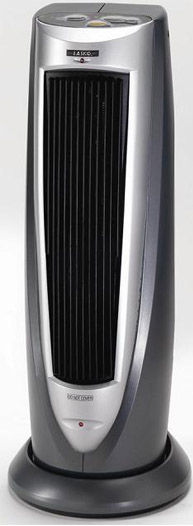 As consumers look to space heaters to stave off the winter chill, a large manufacturer has recalled over 100,000 defective units from the shelves.
As consumers look to space heaters to stave off the winter chill, a large manufacturer has recalled over 100,000 defective units from the shelves.
Lasko Products, Inc. of West Chester, Pennsylvania recalled 107,500 defective space heaters this week in cooperation with the U.S. Consumer Product Safety Commission. An electrical connection in the base of the unit can overheat, causing it to melt and expose the electrical connection.
Lasko received 36 reports of electrical connection overheating with no reports of injury. There were 18 reports of minor burn damage to floors or carpets.
Two defective space heater models were involved in the product recall. The Lasko Model 5540 was sold at Sam’s Club and other retailers from September 2002 through early 2004. The Air Kind Model 8540 was sold primarily through W.W. Granger Inc. from late 2002 to 2004.
Consumers are advised to stop using the defective space heaters immediately and contact Lasko for a free replacement.
If you are using another space heater, please visit the website of the Boston product liability lawyers at Breakstone, White & Gluck. Click here for our home heating safety tips.
Read More
Honda Recalls 384,000 Vehicles for Faulty Ignition Interlocks
Honda has recalled 384,000 vehicles for faulty ignition interlocks that allow drivers to shut off the engine and remove their keys before placing the vehicle into park.
The motor vehicle recall follows at least 28 complaints, 10 of which allege rollaway motor vehicle crashes. In one case, a female owner said she was almost into her house when she noticed her car rolling out of the garage. The car crashed into a cable box at the end of the driveway. In another case, an owner stated the vehicle rolled out of a driveway and crashed into a tree across the street.
One complaint involved a minor injury, Honda said in a statement.
The product recall announced last week involves 197,000 Accords and 117,000 Civics from 2003 and 69,000 Honda Elements from 2003-2004.
Honda has recalled vehicles for similar problems in 2003 and 2005. In those cases, the recalls involved Accords, Odysseys, Acuras and Preludes.
If your vehicle is involved in the Honda recall, you can visit the company’s recall website at www.recalls.honda.com or call its recall center at 800-999-1009, option 4. By calling the recall center, you can determine if your vehicle is actually impacted by the recall. Due to a production change during the model years, Honda said some of the vehicles may not have the ignition problem.
Honda expects to mail recall notices in late September and start the process of repairing vehicles. Motor vehicle repairs will be free.
Until then, concerned drivers may contact their local dealer, but Honda said they have not received replacement parts yet.
To read a Christian Science Monitor article about the recall, click here.
To read the National Highway Transportation Safety Administration alert on the recall, click here.
To read Honda’s statement on the recall, click here.
Read More
After Three Infant Deaths, Company Recalls Baby Sling– Massachusetts Residents Should Take Warning
The US Consumer Product Safety Commission (CPSC), in cooperation with Infantino LLC of San Diego, have announced a free replacement program for two models of defective infant slings. One million of the defective products are being recalled after the three wrongful deaths of infants due to incidents of suffocation. CPSC is aware of the deaths of a seven week old in Philadelphia, a six day old in Salem, OR, and a three month old and Cincinatti, OH. CPSC advises consumers to immediately stop using these slings for infants younger than four months of age due to a risk of suffocation and contact Infantino for a free replacement product. 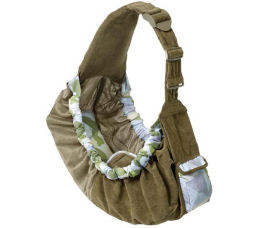
The affected sling models are the “SlingRider” and the “Wendy Bellissimo.” Infantino LLC sold the slings in the United States from January 2003 through March 2010 at Walmart, Burlington Coat Factory, Target, Babies “R” Us, BJ’s Wholesale, various baby and children’s stores and other retailers nationwide, and on Amazon.com, for between $25 and $30. The slings were manufactured in China and Thailand. Consumers should contact Infantino to receive a free replacement product.
CPCS has also released a general warning about sling carriers for babies as they pose two risks of suffocation. The sling’s fabric can press against an infant’s nose and mouth, blocking the baby’s breathing. Additionally, where a sling keeps the infant in a curled position bending the chin toward the chest, the airways can be restricted. CPCS is working with concerned companies to develop safety standards for baby slings.
For information on obtaining a free replacement product, visit www.infantino.com.
To report an incident involving a recalled product, file an incident report at https://www.cpsc.gov/cgibin/incident.aspx.
For more information on the CPCS warning, see the CPCS website. For more information on this specific recall, see this press release. Read More

